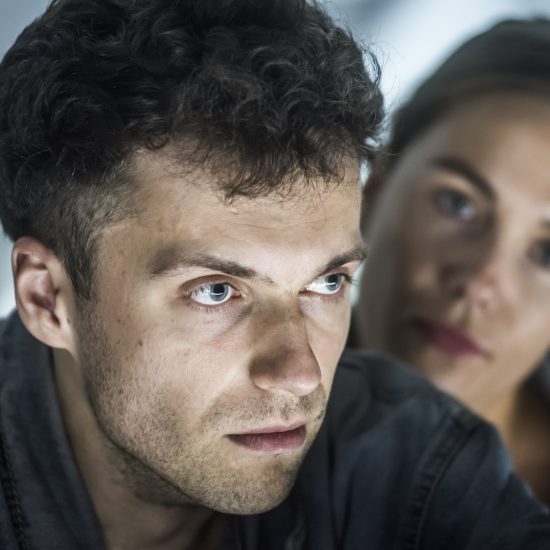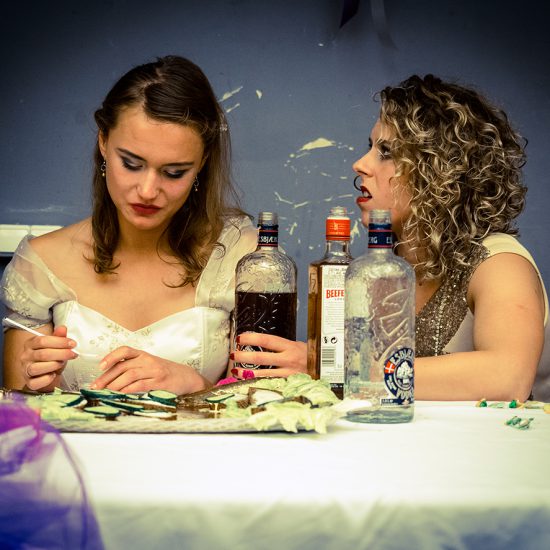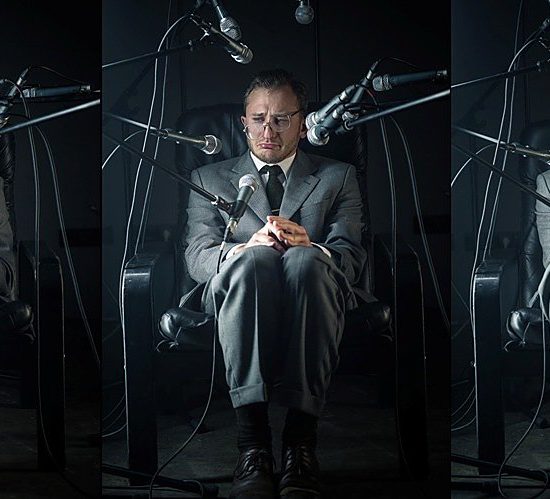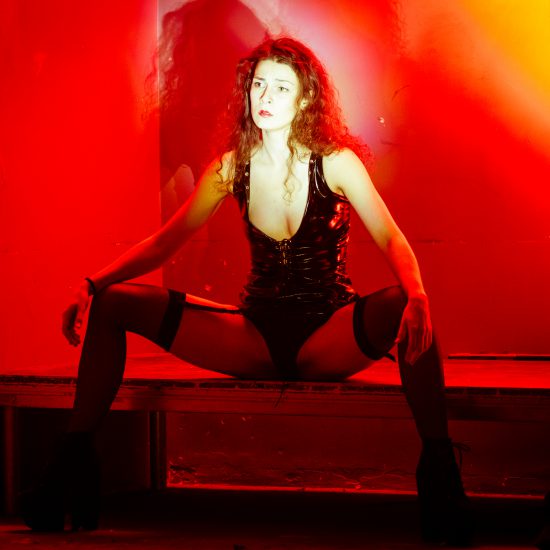Actors are the Priority!
It is recommended to go to see “The Lower Depths” directed by Oskaras Koršunovas (after Maxim Gorky’s play; OKT / Vilnius City Theatre) not being inclined to idly watch embellished “stage pictures”, to decipher the twists and turns of the plot and the director’s or set designer’s tricks, but ready to intensely communicate with the actors, admire their ensemble and individual mastery of each of them. It is a team of really talented actors (Koršunovas does not work with those who are not) from Vilnius and Klaipėda. Their faces are not decorated with make-up. Their natural weariness (wrinkles, puffy eyes, unglamorous hairdos) is not concealed and gives an additional colour to the performance.
Does the director idealize any of the characters? Not a single one. Only the Actor (Darius Gumauskas) seems to earn his sympathies – the theme of a fallen, self-destroyed man. In this motley company that sticks together “out of necessity”, the Actor is the only representative of the artistic occupation, but he is brought down to the ground and deprived of the slightest halo of an artist. Gumauskas treats his character (hesitation: is it really a character?) as a sensitive, modest person, not insistent on attention, young but already bearing a mark of old age, whose theatrical experiences, professional achievements (did they really exist?) and traumas are of no interest to anyone. It is just the winds of the time long gone… Unable to recall even a few lines of poetry, shaking with heavy hangover, the Actor turns himself into an object of public ridicule as he tries to open his soul to the community, to share what is personally important and intimate to him… Thus the suicide of a person who has not fulfilled his vocation and has been emotionally distressed is psychologically well grounded, convincing and painful.
There are a lot of well-recognizable associations with the contemporary world in the performance, depressive moods, and self-mockery while juggling with the questions about the purpose of life. Some actors speak with the audience as if on behalf of themselves, “from heart to heart”, not hiding behind their characters. Others, whose function is to create a relaxing break, play distinctive character roles. However, while sitting in front of the actors on the other side of a long table, you feel as if you were in front of a mirror. Your fears, your self-defence, the lower depths of your despair…
The characters most often communicate with each other through the audience and compete for “emotional support”, ardently protecting their standpoint on some issue. The reins of the ensemble performance appear to be held by Gavenonis’s reservedly authoritative Satin and Darius Meškauskas’s ironic Baron submissive to the former, whose sneers at the others are biting but defensive: he is waiting for approval and betrays his inner weakness… Other characters have to merge precisely into the general texture of the performance with their scenes and monologues. All actors remain in view throughout the performance: some of them as characters – behind the table, and others – as observers of the acting colleagues.
Thus in this ascetic production Koršunovas, having tamed his director’s fantasy, plunged headlong into the work with the actors and invited them – along with the audience – to a journey towards a different theatre.
***
Ridas Viskauskas, Literatūra ir menas, 7 January 2011



